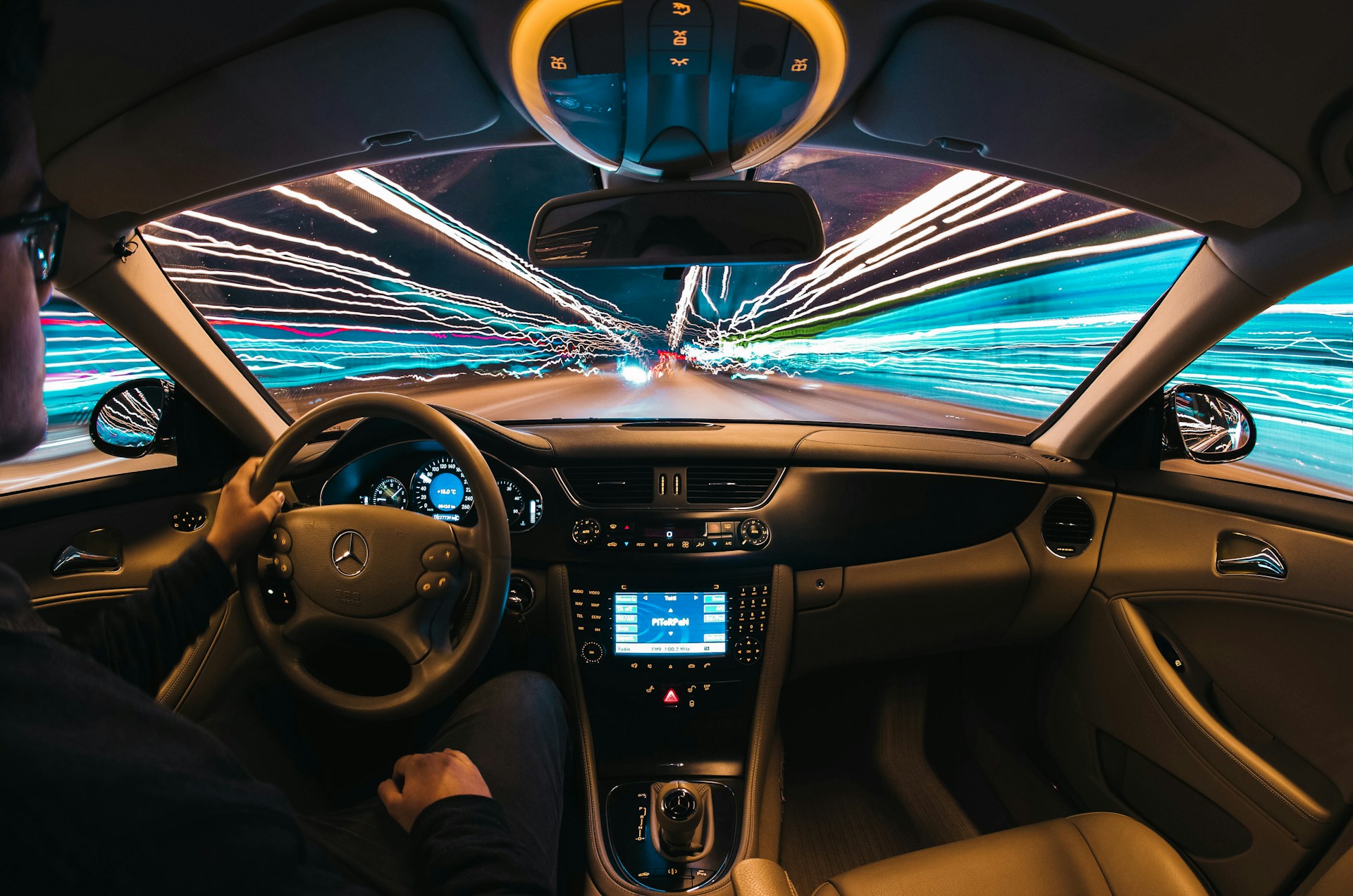
How 5G Is Shaping the Future of Smart Cities and Self-Driving Cars in Korea
In recent years, South Korea has emerged as a global leader in 5G technology, pioneering new possibilities for urban innovation. With ultra-fast connectivity and near-zero latency, 5G has become the backbone of two major developments that are revolutionizing modern cities: smart city infrastructure and self-driving cars. As urban populations grow and technology advances, South Korea’s efforts to integrate 5G into these fields position it at the forefront of a future defined by connectivity, efficiency, and automation.
A Vision of Tomorrow: Smart Cities in the 5G Era
Smart cities are no longer a futuristic concept; they are becoming a reality. In South Korea, cities like Seoul and Busan are using 5G to power intelligent infrastructure, improve public services, and enhance urban living. Busan Eco Delta Smart City, for example, is set to become one of the world’s most advanced smart cities, relying on 5G networks to connect sensors, IoT devices, and data centers.
5G’s key advantage in smart cities lies in its ability to process vast amounts of data in real-time. This means that city infrastructure—from energy grids to traffic lights—can be monitored and controlled instantly, improving efficiency and reducing waste. Dr. Kim Hyeon-jin, a smart city researcher at Seoul National University, explains: “5G enables us to create a seamless flow of data between devices and control systems, which makes everything more responsive, from public safety systems to environmental monitoring.”
Transforming City Services with 5G
Some of the key applications of 5G in smart cities include:
- Public Safety: High-definition surveillance cameras linked to 5G networks enable real-time monitoring of streets, alerting authorities to accidents or suspicious activities instantaneously.
- Smart Energy Management: Smart grids optimize energy consumption across the city, reducing electricity waste and lowering emissions by dynamically adjusting to supply and demand.
- Traffic and Transport Systems: 5G allows for real-time updates of traffic conditions and public transport routes, significantly reducing congestion and enhancing the overall commuting experience.
Seoul is already piloting 5G-based autonomous buses in the Sangam-dong district, using real-time data to optimize routes and reduce wait times. With 5G powering these innovations, the way cities operate is poised to change fundamentally.
The Rise of Self-Driving Cars: Powered by 5G
The autonomous vehicle market in South Korea is gaining momentum, largely thanks to the widespread availability of 5G. The country has set an ambitious goal of having fully autonomous vehicles on its roads by 2027, and 5G technology is crucial for achieving this. Self-driving cars rely on Vehicle-to-Everything (V2X) communication, which allows them to connect with other vehicles, traffic signals, and road infrastructure.
One of the key features of 5G is its ultra-low latency—the delay between sending and receiving information—which is critical for autonomous driving. This allows cars to react to road conditions in real-time, significantly improving safety. Lee Sang-woo, a senior engineer at Hyundai Motor Group, explains: “5G’s latency is measured in milliseconds. This means that a self-driving car can detect a pedestrian, process the information, and brake in the blink of an eye. Without 5G, this kind of rapid decision-making wouldn’t be possible.”
Key Milestones in Korea’s Autonomous Driving Efforts
- K-City Testbed: Located in Hwaseong, this is South Korea’s premier testing facility for autonomous vehicles. It features a 5G-enabled environment that simulates urban conditions, from traffic lights to pedestrians. Both Hyundai and Kia have been testing their self-driving cars here.
- RoboShuttles: Hyundai has introduced RoboShuttles—self-driving buses that operate in the smart city of Sejong. These 5G-powered shuttles interact with the city’s traffic infrastructure, allowing them to make real-time decisions based on current road conditions.
- 5G-Connected Highways: South Korea’s major highways are being equipped with 5G networks to support autonomous vehicles, creating a national infrastructure where self-driving cars can communicate with each other and the environment around them.
By using 5G networks to connect vehicles and infrastructure, South Korea is creating a fully integrated transport ecosystem that enhances safety, reduces traffic congestion, and improves the overall driving experience.
Government Support and Collaboration with Industry
South Korea’s government has been instrumental in fostering an environment that promotes the integration of 5G into both smart cities and autonomous vehicles. Through its Digital New Deal, the government has allocated billions of dollars to develop digital infrastructure, including the expansion of 5G networks and smart city technologies. In parallel, regulatory frameworks are being updated to accommodate the rapid advancements in autonomous driving.
SK Telecom, KT Corporation, and LG Uplus, South Korea’s three major telecom providers, have been collaborating with car manufacturers like Hyundai to deploy 5G technology nationwide. These partnerships are critical to the success of 5G-enabled innovations. In 2021, KT announced a joint venture with Hyundai to develop a commercial autonomous driving platform, leveraging KT’s 5G network for real-time data processing.
“The collaboration between tech companies, automakers, and the government is a key factor in Korea’s success. We are building an ecosystem where 5G-powered technologies can thrive,” said Cho Min-kyung, an industry analyst at Korea Telecom Research Institute.
Challenges and Future Prospects
Despite South Korea’s leadership in 5G technology, several challenges remain. One significant hurdle is ensuring comprehensive 5G coverage. While urban areas have robust 5G networks, rural and remote regions still lag behind. For both smart cities and autonomous driving to function seamlessly across the country, more investment in rural infrastructure is necessary.
Another challenge lies in public acceptance and safety concerns around autonomous vehicles. While 5G enables safer and more reliable self-driving technology, the public still needs reassurance about the safety and security of these vehicles on the road. Developing clear regulations and standards will be critical to building trust among citizens.
Looking ahead, South Korea’s 5G ambitions will likely continue to grow. The integration of AI, IoT, and big data with 5G could unlock even more advanced applications for smart cities and self-driving cars. “We’re just scratching the surface of what’s possible,” says Park Hyo-jin, a 5G specialist at LG Uplus. “The future of 5G is about creating cities that are more connected, sustainable, and safe.”
Conclusion: A Glimpse Into the Future
As South Korea leads the global race in 5G development, its advancements in smart cities and self-driving cars are setting the stage for a more connected, efficient, and safer future. With government support, industry collaboration, and continuous technological innovation, the country is poised to become a world leader in these transformative fields. However, challenges such as expanding infrastructure and building public trust will need to be addressed to fully realize the potential of 5G.
In the years to come, the evolution of 5G technology will continue to reshape urban landscapes and transportation systems, not only in South Korea but around the world. As this revolution unfolds, South Korea’s progress offers valuable insights and lessons for other nations looking to harness the power of 5G for smart cities and autonomous mobility.


